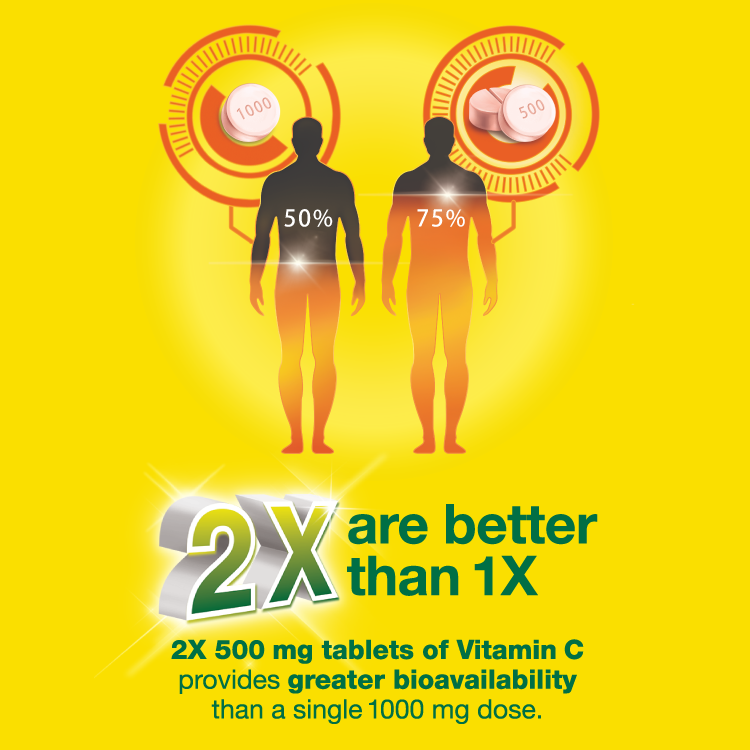
Vitamin C, What You Didn’t C
Vitamin C is a water-soluble vitamin that is naturally present in some fruits and vegetables. Our bodies cannot make vitamin C on their own, so it’s important that we get enough vitamin C from food or dietary supplement.
Vitamin C helps your immune system function at its best and protect against damage from free radicals. It is also needed to make collagen, aid in wound healing and keep the skin looking young and lovely.1
The intestines have a limited ability to absorb vitamin C. Studies have shown that absorption of vitamin C decreases to less than 50% when taking in a single dose of 1000mg when compared to 500mg which is higher at 75% absorption. Once the body tissues become saturated with vitamin C, absorption decreases and any excess amount will be excreted in urine.
Hence, consuming 500mg twice daily is recommended as it achieved a total of 750mg of vitamin C per day after absorption.3 This lower dose recommendation helps to provide the best balance between practicality and maintaining high levels of vitamin C in the blood. Taking 1000mg tablet in a single dose, on the other hand, only gives a total of 500mg vitamin C after absorption.

Vitamin C is one of the essential vitamins that we need to include in our everyday diet to ensure the proper functioning of the body. If you are unable to receive the recommended amount of Vitamin C from your diet, try to take Vitamin C supplement such as Appeton Essentials Activ-C, available in lower strength of 250mg or 500mg to reach your Vitamin C daily requirement.
Taking the right amount of vitamin C with the right dose will help you achieve maximum vitamin C absorption to avoid wastages for urine and achieve optimum results. Remember, higher single dose of vitamin C does not mean higher absorption. So be a smart consumer and take vitamin C the right way. Now you C what you didn’t C about vitamin C!
Learn more: Appeton Essentials Activ-C
References:
- Carr AC, Maggini S. Vitamin C and Immune Function. Nutrients. 2017 Nov 3;9(11):1211. doi: 10.3390/nu9111211. PMID: 29099763; PMCID: PMC5707683.
- Levine M, Padayatty SJ, Espey MG. Vitamin C: a concentration-function approach yields pharmacology and therapeutic discoveries. Adv Nutr. 2011 Mar;2(2):78-88. doi: 10.3945/an.110.000109. Epub 2011 Mar 10. PMID: 22332036; PMCID: PMC3065766.
- Alexander Michels, PhD (2015), Questions about Vitamin C, Retrieved from: http://blogs.oregonstate.edu/linuspaulinginstitute/2015/05/28/questions-about-vitamin-c/
